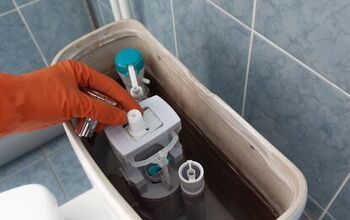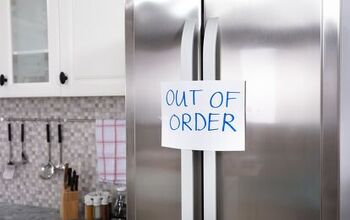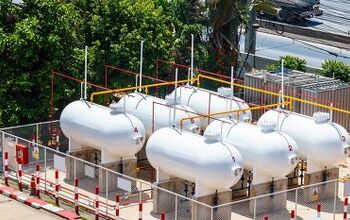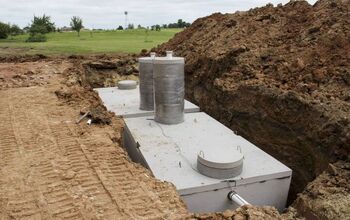Symptoms Of A Bad AC Capacitor (Here Are 7 Telltale Signs)

If you’re a fan of Back to the Future like I am, the first capacitor you probably heard of is a Flux Capacitor. Though that item is fictional, there are real capacitors, and most major appliances have at least one they require to run. Your air conditioner unit isn’t much different. So, how can you tell if your unit’s capacitor went bad?
There are several major clues that suggest your AC capacitor has gone bad. The most common ones include:
- Problems turning on
- A burning smell from your unit
- Random shutoffs
- Delayed AC actions
- No cold air
- Higher energy bills
- No voltage
Any of these signs mean that you will need your new AC capacitor replaced.
If your air conditioner’s capacitor starts to go, you have to replace it sooner rather than later. This guide will help you deduce whether you need to check out your capacitor or if you have something else wrong with your unit.
Do You Need Central A/C Service or Repair?
Get free, zero-commitment quotes from pro contractors near you.

The Most Common Signs Of A Faulty Capacitor
Capacitors very rarely ever die out at random. They often display signs of struggles before they fail. Let’s take a look at some of the most common issues a capacitor can lead to, shall we?
- A faulty capacitor can prevent your air conditioning unit from turning on. An AC unit that won’t turn on could be caused by many things, including a capacitor failure. If you’ve ruled out other issues like a wire disconnect or a burnt-out motor, then it could be your capacitor.
- Sometimes, a dying capacitor will let your unit turn on, but it won’t stay on. Or, it could cause your unit to have a hard time staying on. You’ll find your air conditioner shutting off at random times of the day, even when you’ve programmed it to work.
- If your capacitor just started to fail or just blew out, you might detect a burning smell coming from the unit. Capacitors can burn out. When they do, they’ll sometimes make a soft “pop,” and you might smell some smoke emanating out of the air conditioning unit. Sometimes, the smoke smell might linger a little longer.
- Your air conditioner may also have delayed or slowed reactions. You signal your unit to cool down the air. Your air conditioner pauses but doesn’t react. You wait. After a couple of minutes, it finally starts working. Sound familiar? It’s a bad capacitor.
- One of the most telltale signs you may see involves a unit that won’t blow cold air. An air conditioner that doesn’t blow cold air is most commonly linked to a bad capacitor.
- You took a voltmeter to the capacitor, and it didn’t show any voltage. This is, by far, the most reliable way to tell if you need new capacitors without changing them out. If you have a voltmeter, try this method out before anything else.
- Finally, you may also notice one of your energy bills climbing. A bad capacitor that hasn’t entirely failed can easily cause higher bills every month.
How Do You Fix A Bad Capacitor?
The good news about having a bad capacitor is that it’s an easy fix. All you have to do is replace it. Since most capacitors are small, handheld items, you never have to struggle too much to get them out of your system. Moreover, this also happens to be one of the most affordable fixes that you could have to perform.
How Much Does An AC Capacitor Replacement Cost?
Most people who have a little DIY experience choose to replace their capacitors on their own. A typical AC unit capacitor will cost between $12 and $35 a pop, with some having a slightly higher price tag. Since this is generally a DIY-oriented repair, you shouldn’t expect to have to pay for any additional labor.
With that said, if you want to hire a professional to replace an air conditioner capacitor, you should expect it to cost between $50 to $100. Many companies may also require you to pay a diagnostic fee to ensure that the capacitor is the issue at hand.
What Does Your AC Unit’s Capacitor Do?
Your AC unit’s capacitor has a pretty vital role in the way your unit works. The capacitor stores electricity and provides the high-voltage jolt of electricity needed to your fan motor, blower motor, and compressor.
When your capacitor doesn’t work, your unit won’t have enough energy to run its main components adequately.
Without a capacitor, your unit will have a higher risk of having a short circuit, difficulty starting, as well as electrical flow issues. Simply put, your capacitor helps regulate the flow of electricity to the parts that need it.
What Should You Do If You Aren’t Sure Whether Your Capacitor Is Faulty?
Diagnosing your air conditioning unit’s issues isn’t always easy, especially when there could be multiple issues.
Thankfully, there’s an easy way to determine whether the capacitor is the issue or if it’s something more pricey. The easiest way to figure out if you have a bad capacitor is to replace the capacitor to see if things improve.
Capacitors are a few parts of an air conditioner that is easy and super cheap to fix. If your capacitor replacement works, then you’re good to go.
If replacing your capacitor doesn’t work, well, you won’t have to worry about replacing them or buying more later on. Some might even consider this to be a form of preventative maintenance.
How Often Should You Replace Your AC Unit’s Capacitor?
Though capacitors are remarkably inexpensive, you don’t have to change them too often. Capacitors have an incredibly long lifespan, with most of them lasting between 10 to 20 years.
However, some issues can dramatically shorten their lifespans. Some of the more common reasons for a dead capacitor include:
- Inclement Weather. An air conditioning unit that’s been struck by lightning or hit by a flood will often have many issues, the most common of which is a blown capacitor. Any weather that could affect your unit’s electrical flow can and will affect the capacitor.
- Mechanical Damage. Corrosion and breaking can easily cause your capacitor to get shaky.
- Short-Circuiting. A short circuit in your power grid is a fairly obvious reason you might have capacitors that go bad, which is not only valid for AC units. It’s also true for almost anything that contains a capacitor.
- Overuse. Do you love to use your air conditioners on super-hot days? It may boost your comfort levels, but it can cause your unit to demand more energy. If your team works too hard, it could overheat, which could potentially harm your capacitor.
- High Heat Exposure. If you live in an area that’s known for record-high heatwaves, be prepared to change your capacitors a little more frequently.
How Can You Prevent A Capacitor Blowout?
Truth be told, you can’t always prevent a capacitor from having a premature death. I mean, it’s not like you can change the weather, right?
However, there are a couple of things you can do. Maintaining your HVAC system well, keeping your AC unit’s airflow reasonable, and also using your air conditioning in moderation can all help prevent a blowout from happening.
Moreover, if you want to make the most of your unit altogether, it’s good to address problems as soon as you notice them. Not addressing issues with your system can easily cause a capacitor to wear out sooner rather than later.
Do You Need Central A/C Service or Repair?
Get free, zero-commitment quotes from pro contractors near you.

Related Questions
Can I replace my older capacitor with a capacitor that has a higher rating?
It’s essential to make sure that you choose the suitable capacitor for your air conditioning unit, and that includes matching the voltage rating that your old capacitor has. Trying to run an air conditioner with a capacitor with a higher voltage rating than its handle will not work out well.Using a capacitor that has a voltage rating that doesn’t match will cause your air conditioning unit to short out, or worse, burn out.This can lead to permanent damage to your unit. When in doubt, hire a professional to match the correct capacitor stats for your unit.
How many capacitors should an AC unit have?
The number of capacitors you should expect an AC unit to have depends on the model type. If you have a small air conditioning unit, you probably only need to have one capacitor. Most medium to large AC units will require two and are often called “Dual Capacitor” models due to that need.If you have a very large air conditioning unit, you may have a unit that requires three capacitors. However, this is more of an exception to the rule than anything else.
Can an AC capacitor kill you?
AC capacitors are not deadly, but that doesn’t mean that you can be reckless while replacing them. The voltage that the capacitor stores can still seriously hurt you if you come into contact with it. This is why you need to turn off your AC unit before you take out the capacitor.If you have reason to believe that your capacitor has been torn and that fluid could be leaking from it, do not touch it.Instead, call a professional or use gloves to remove the bad capacitor. The acid in the capacitor can damage your equipment and also cause chemical burns.
Related Guides

Ossiana Tepfenhart is an expert writer, focusing on interior design and general home tips. Writing is her life, and it's what she does best. Her interests include art and real estate investments.
More by Ossiana Tepfenhart



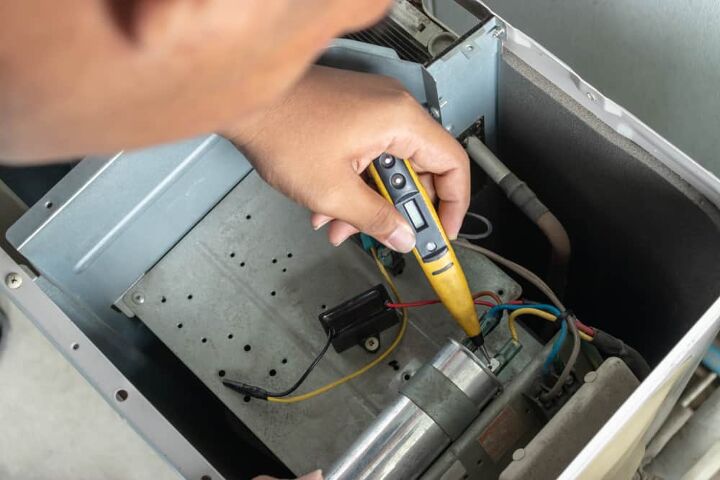






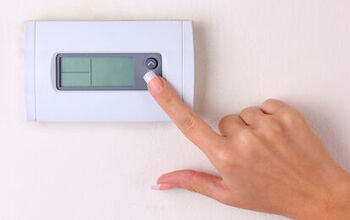
![Finishing Basement Without Permit [Is It Really Illegal?]](https://cdn-fastly.upgradedhome.com/media/2023/07/31/9070078/finishing-basement-without-permit-is-it-really-illegal.jpg?size=350x220)
![10 Best Electric Pressure Washers – [2022 Reviews & Guide]](https://cdn-fastly.upgradedhome.com/media/2023/07/31/9070600/10-best-electric-pressure-washers-2022-reviews-guide.jpg?size=350x220)
